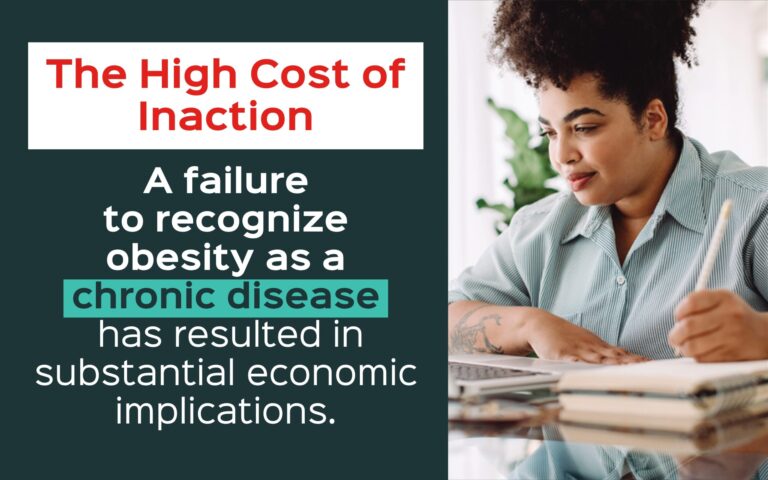
by Ian Patton, PhD, Director of Advocacy and Public Engagement, Obesity Canada
After a long anticipated wait, the day has come where Health Canada has approved a new treatment option for the management of obesity in the form of the medication semaglutide 2.4mg (marketed as Wegovy). This medication has been dubbed a “game changer” in the world of obesity management because of the impressive data suggesting significantly improved outcomes compared to other options. This is an important step in providing a diverse and effective toolbox of options to address this complex chronic disease.
To date, our toolbox has been limited. Bariatric surgery has been the most effective treatment for obesity, but no treatment is universal and surgery is not the right choice for many individuals. Further, bariatric surgery is severely under-utilized. We have unacceptably long wait times that vary greatly across the country, in many cases waits are measured in years. No one should have to wait multiple years to have treatment for a chronic disease. The end result is disease progression, worse health outcomes and delays in achieving better health.
Dr. Arya Sharma, OC’s former scientific director, regularly brought this point up in presentations, and would highlight that in all other chronic diseases you can think of that treatment gap can be addressed with other treatments like medications. Medications are scalable and something that could be helpful to a lot of people. With what we know about the role of the brain and biology in obesity, there is hope that effective treatments that address these factors can significantly improve outcomes for individuals living with obesity. While the medications that are currently approved for obesity management are safe and effective, the effectiveness is generally somewhat less than that seen with bariatric surgery.
What has caused the launch of semaglutide 2.4 mg to be deemed a “game changer” is that the data suggests that the effectiveness of this medication is getting close to the effectiveness seen with bariatric surgery. As someone living with obesity, it is exciting and hopeful that as we learn more about this disease, more options become available so more people can manage their disease.
However, the approval of this game-changer only highlights the need to change the game itself. Yes, a new tool is available and it shows a great deal of promise, however, availability and accessibility are two very different things. In Canada, accessibility of evidence-based effective obesity treatments is abysmal. Beyond the wait times for bariatric surgery, individuals living with obesity, generally do not have access to health professionals with training in obesity management, support for things like mental health, cognitive behavioural therapy, nutrition and activity are also very limited. When it comes to obesity medications, very few Canadians have coverage through either public or private drug plans.
This lack of coverage and accessibility of effective treatments is rooted in not recognizing obesity as a chronic disease and rather incorrectly labeling it a “lifestyle” condition or in other words, something you have done to yourself making you not worthy of treatment.
So while our tool box is getting bigger and more effective, we have not seen significant changes in who is able to open that tool box.
Now is the time to start making some noise and asking questions. Ask your health professionals about obesity and obesity management. Direct them to our Clinical Practice Guidelines. Ask your benefits provider why they are not covering obesity treatments in the same manner they do for other chronic diseases. Ask your employer why obesity treatments are not included in your benefit plans on the same level as other chronic diseases. Ask your local, provincial and federal policy makers to recognize obesity as a chronic disease and to implement policy that supports accessibility to evidence-based care by signing on to this campaign.
Changing the game starts with having the conversations, and the more these conversations are happening, the easier it will be to make the changes needed.





